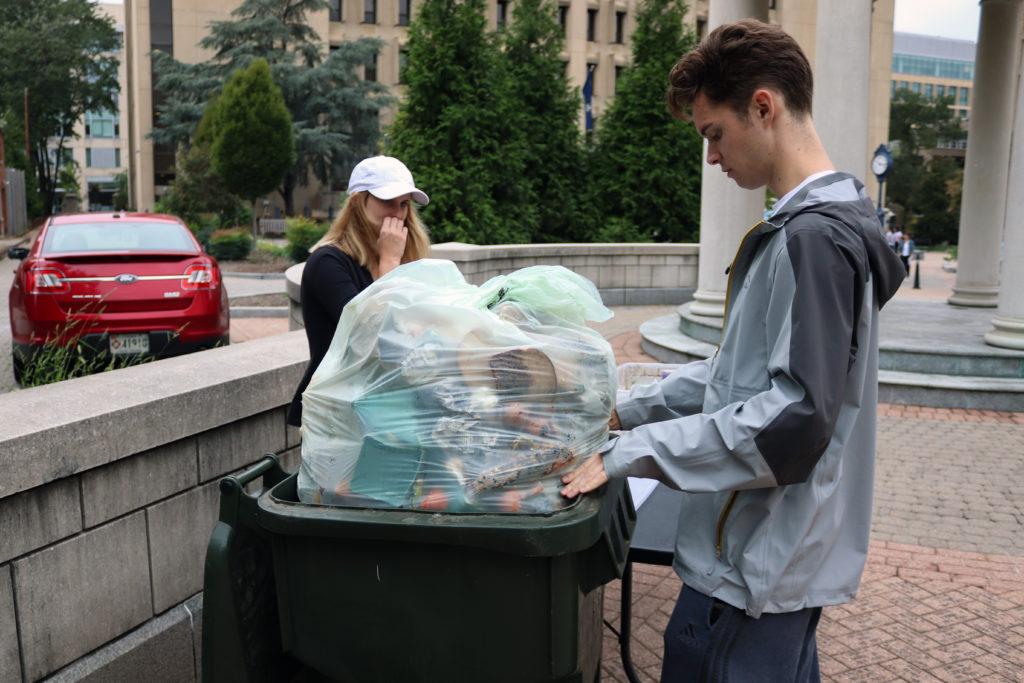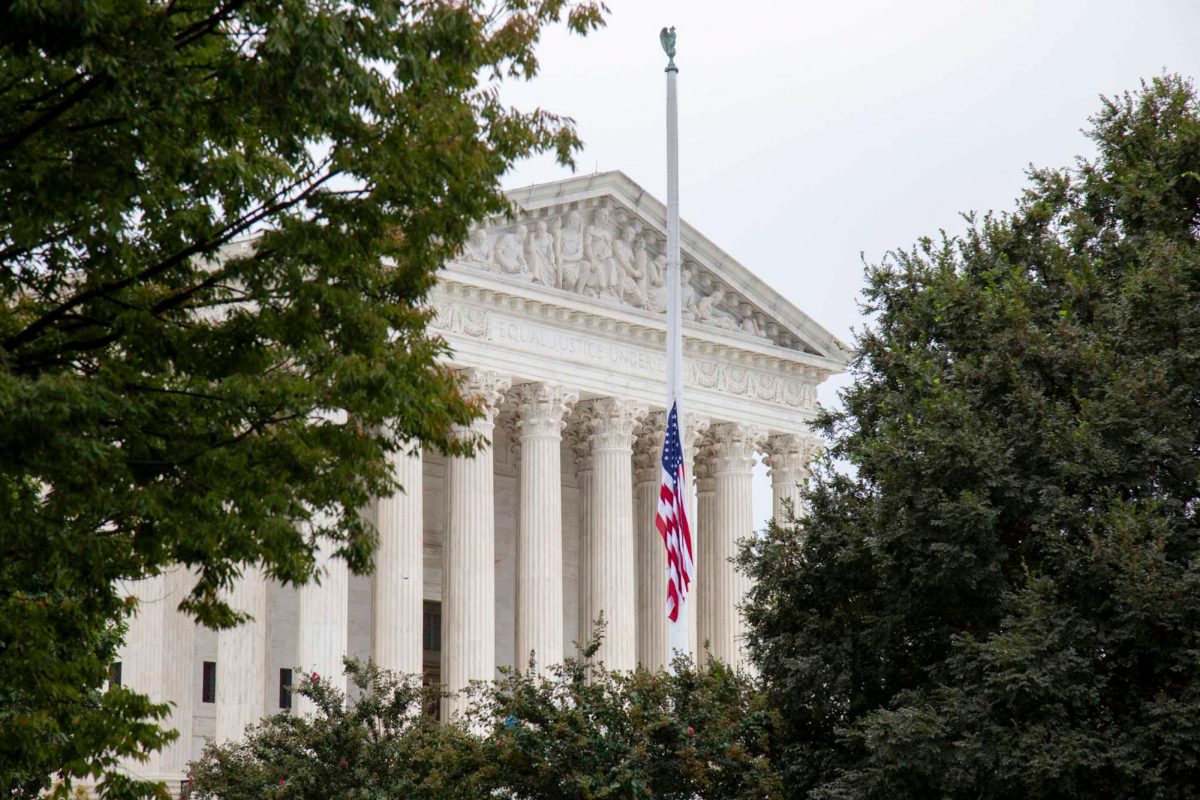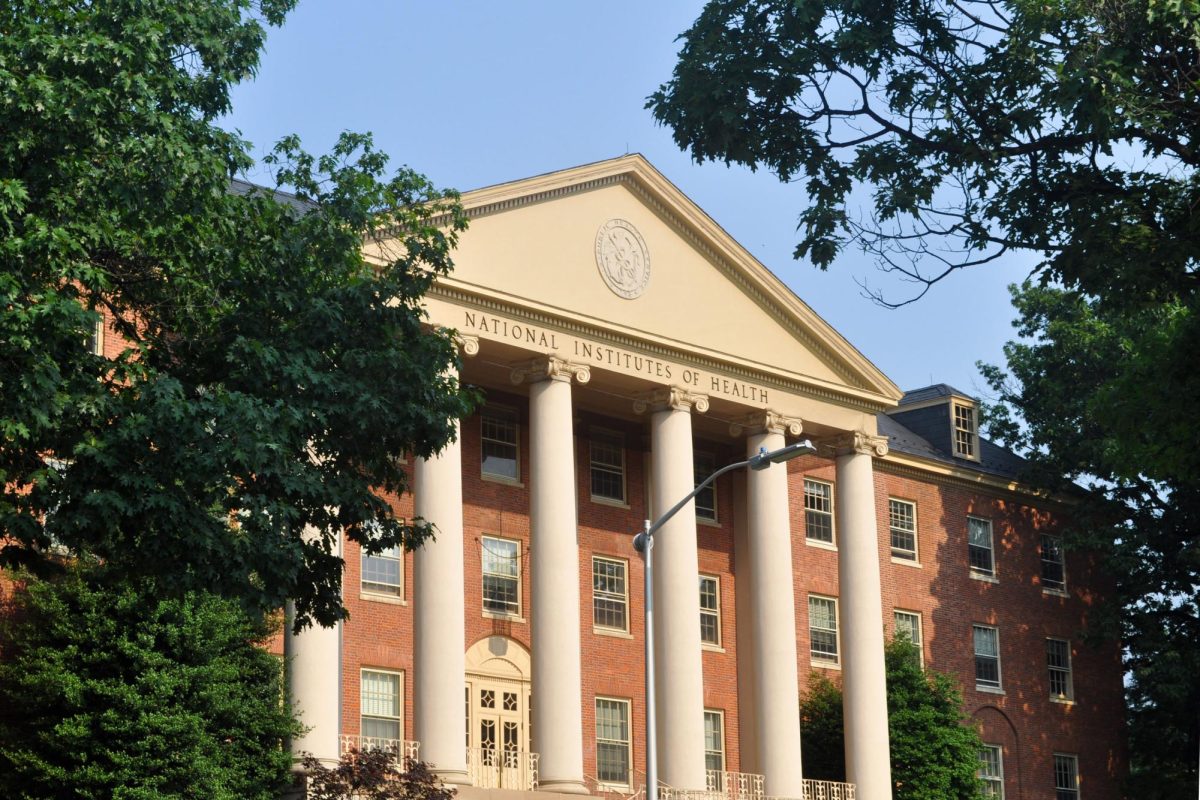Two sustainability office interns will pick up a composting program originally maintained by Campaign GW.
Campaign GW disbanded late last month amid University-wide financial cuts resulting from the COVID-19 pandemic, but officials said students will continue the weekly program through the Office of Sustainability. Meghan Chapple, the director of the sustainability office, said the volume of compost this semester is less compared to last year because most students are not on campus, but students are still offering compost collection on a weekly basis for those living on campus.
“The volume of compost collected so far is less than last year because we began the semester with biweekly collections,” Chapple said in an email. “However, it quickly became clear that the program continues to be very popular. We increased the frequency of collections to once a week again to accommodate the need.”
She said the sustainability office partnered with the Office of Facilities, Planning, Construction and Management to run the program moving forward. She said officials coordinate with two paid interns, who lead the composting program, but she declined to say what the communication and coordination between officials and the students look like.
Chapple added that the interns who run composting collection typically recruit members to assist in the process, but officials have paused that portion of the program because of the pandemic.
“The GW Compost program has been successfully implemented each semester since its launch in the spring of 2018,” Chapple said. “The program is widely popular among students and provides an opportunity for GW to divert food waste from the landfill.”
GW Compost launched with the goal of sending compost from students to Prince George’s County Organics Compost Facility, according to Sustainable GW’s website. The site processes more than 50,000 tons of material annually, according to the compost facility’s website.
The composting program diverted 400 pounds of food waste each week from landfills in spring 2019, Sustainable GW’s website states.
Junior Ruby Dietz, a political communication major and former intern for Campaign GW, said the composting coordinators initially planned to offer composting drop-off every other week for the fall semester, anticipating that the number of participants would drop as the majority of students are away from campus. But she said coordinators increased the frequency of drop-offs following higher than expected interest from students.
On-campus students can drop off their food waste every Friday morning in Kogan Plaza from 9:30 a.m to noon, according to Sustainable GW’s website. Students have typically dropped off at least 100 pounds of compost per week, according to posts on Campaign GW’s Instagram page.
Dietz said students have seemed eager to drop off compost every week because Kogan Plaza, typically filled with student organization leaders tabling, has been empty this semester and students are looking for familiar faces.
“For a lot of people that are on campus, they don’t get to have a lot of human interaction or interaction with other students, and obviously there is no tabling or any sort of in-person student org stuff, so having one thing you can depend on is nice,” Dietz said.
Dietz said some students, like the volleyball program, have used social media to promote the program. She said one member of the volleyball team created a presentation about composting and posted it on her social media to encourage people to participate in the program.
Dietz said four to five students typically volunteer to collect compost on Fridays, but now just the two interns staff the collection station and masks are required for people dropping off compost. She said both student volunteers, Jillian Webber and Natalie Wright, wear long rubber gloves when handling compost donations.
“I feel like I need to commend them because rain or shine they will be there,” Dietz said. “It was raining a couple of days ago and a lot of people were worried that composting was going to be canceled, and it wasn’t.”
Wright declined to comment, deferring to the sustainability office. Webber did not return a request for comment.








